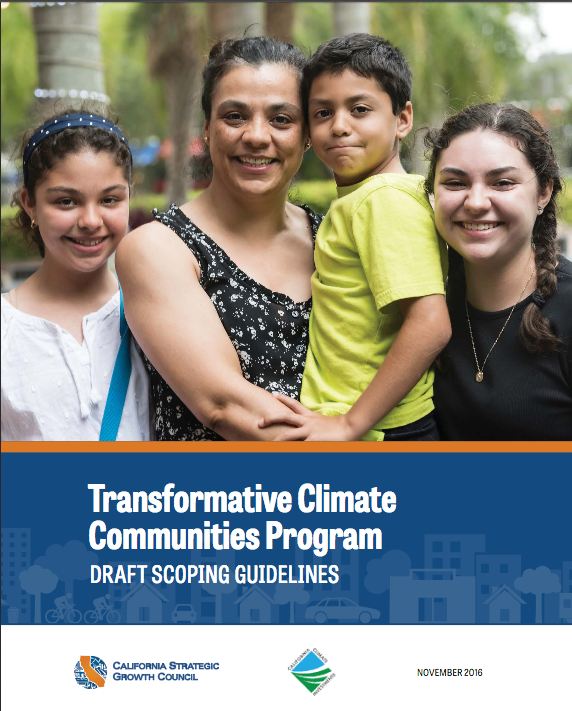One of the benefits of California's cap-and-trade program is that it produces revenue that can be invested in exploring ways of reducing greenhouse gas emissions beyond just capping them. For example, the Affordable Housing and Sustainable Communities program makes the connection between where and how people live and how they get around, which affects how much greenhouse gas they emit. As one of the few state sources of affordable housing money available, AHSC encourages developers to tie transportation in with housing at early planning stages.
In the last session, the legislature created a new program to do something similar for communities. The Transformative Climate Communities program, funded with $140 million from cap and trade under A.B. 2722, will focus on encouraging public participation and coordination among state agencies to reduce greenhouse gas emissions and “provide local economic, environmental, and health benefits to disadvantaged communities.”
The money—pending approval by the Strategic Growth Council and other official channels—will likely go to Fresno ($70 million), Los Angeles ($35 million), and one more as-yet-unnamed location ($35 million). The program includes smaller grants for up to ten other communities to help them prepare for future possible funding rounds.
The idea is to engage people, institutions, agencies, community groups, and other organizations to find a way to transform those communities into sustainable, equitable, connected, economically and environmentally healthy places to live, so they can serve as a model to guide future state investments.
It's one of those crazy aspirational ideas that California keeps coming up with—and keeps finding a way to succeed with.
An early “scoping” draft of the program's guidelines was just released by the Strategic Growth Council “to provide an initial framework for public comment.” Comments on this draft can be submitted until January 9 to tccpubliccomments (at) sgc.ca.gov.
The preliminary list of objectives for the program are to:
- Maximize greenhouse gas emissions reduction
- Build, strengthen and sustain local leadership and grassroots engagement in civic and community development
- Implement Sustainable Communities Strategies (required under S.B. 375 as part of Regional Transportation Plans)
- Improve environmental, social, and health equity
- Expand economic opportunity
- Increase resilience
- Leverage funding
- Quantify and evaluate impacts
SGC staff plan to release revised draft guidelines, incorporating any comments received, in late January or early February, at which time they will also hold public workshops throughout the state.






